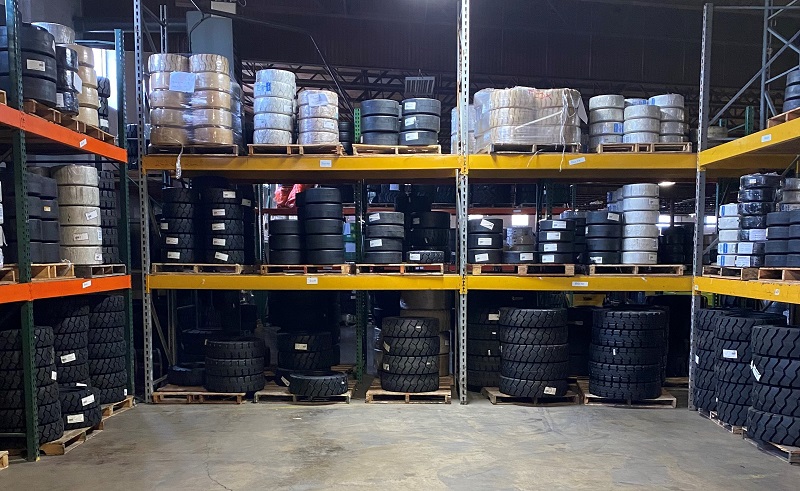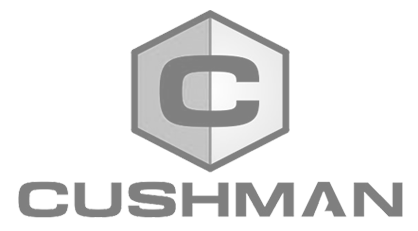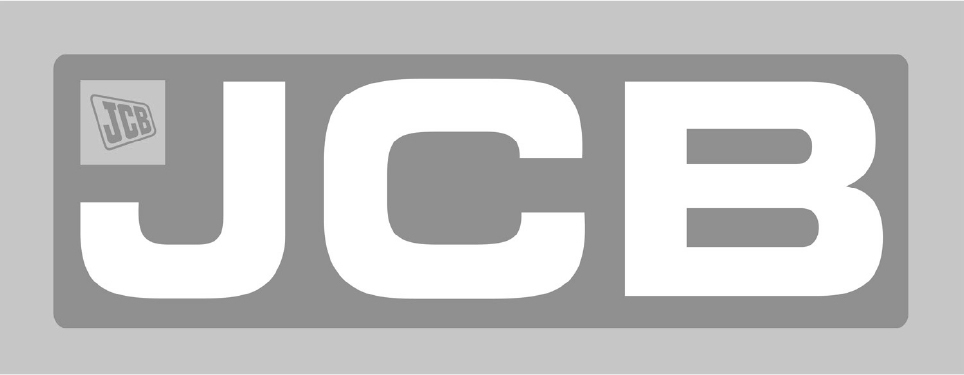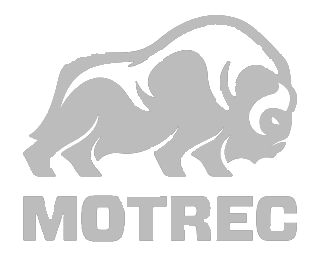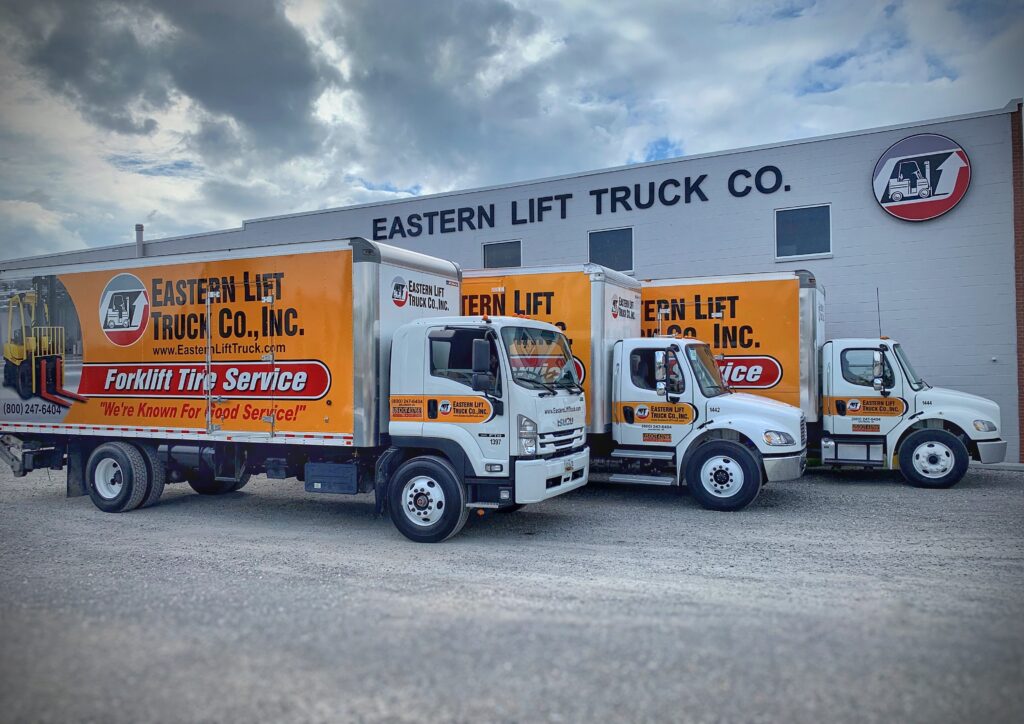
Tire maintenance is critical to having a safe and properly functioning forklift. Eastern Lift Truck Co.’s Tire Department offers tire inspections, mobile tire pressing and installation services and maintains a large inventory of high-quality tires for all makes and models of forklifts, skid steer loaders, telehandlers, and other industrial equipment.
Contact a Tire Specialist at your nearest Eastern Lift Truck Co. facility or ask your local Customer Service Representative for assistance.
- Large inventory of top brands
- Competitive pricing
- On-site tire installation services
- Safe, knowledgeable, and courteous technicians
- Service programs for routine tire inspection
- Application review and recommendations
How do I know when I need to replace the tires on my forklift?
A general rule is when tires reach 30% wear they should be replaced. Some tire manufacturers provide a visible safety line that serves as an indicator when tires should be replaced. When in doubt, ask our team for assistance in evaluating your tires. Tires should be replaced in sets so as not to impair forklift stability.
Common types of forklift tire issues include:
- Cuts or chunking caused by rough or uneven surfaces (potholes, cracks, dock plates)
- Cracks caused by exposure to extreme temperature changes
- Flat spots caused by excessive tire reversal or hard braking
- Flats or embedded debris caused by sharp objects and/or dirty floors
Forklift tires are exposed to a variety of surfaces – some better than others – and a certain level of wear and tear is to be expected. However, excessive tire wear or chronic tire damage should be evaluated, and the cause addressed as soon as possible, to reduce overall costs and dangerous situations for forklift operators, and the people and products around them. Solutions include filling holes and fixing cracks in floors, adjusting uneven dock plates, and improved housekeeping to remove debris from floors.
Improper care of forklift tires may lead to:
- Excessive vibration, causing:
- Distracted and fatigued operators
- Electrical issues
- Premature component failure
- Fluid leaks
- Potential steering issues and decreased load capacity
- Increased distance needed for braking
- Increased fuel consumption
- Dragged, worn load forks
What are the benefits of proper forklift tire maintenance and replacement?
- Improved vehicle life
- Improved energy efficiency
- Improved brake function
- Decreased component issues
- More comfortable, alert, safe operators
What are common types of tires and wheels offered by Eastern Lift Truck Co.?
- Cushion Tires – rubber and polyurethane
- Non-marking Tires
- Solid-shaped Pneumatic Tires
- Air-filled Pneumatic Tires
- Polyurethane Load and Caster Wheels
- Siped Tires for damp and/or cold floors
